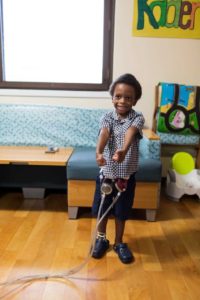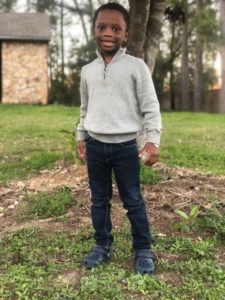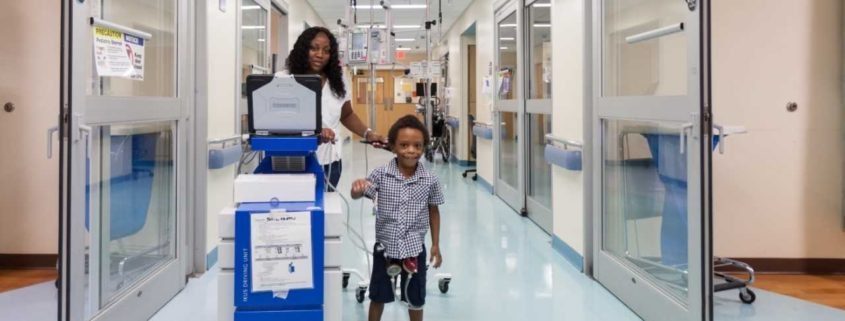A Change of Heart
March 2, 2020: Whenever the examiner at the driver license office asked Erica Shields if she wanted to register to be an organ donor, she was quick to answer.
“I would always say no,” Shields said. “No, no, no, no, no.”
Then something happened that caused Shields to have a change of heart. Her son, Kaden, then 3 years old, was diagnosed with dilated cardiomyopathy, a critical condition in which blood flow is decreased, causing the heart to enlarge and weaken.
Little Kaden would need a heart transplant if he were going to survive.
“You don’t know how close something like this is until it hits home,” Shields said.
She spent eight months at UF Health Shands Hospital in Gainesville where her son was hooked to a Berlin Heart machine, a heart pump that maintains the blood flow in small children with serious heart failure.
As Kaden clung to life, Shields could not help but wonder why she had declined to register as an organ donor all those times before.
“Prior to everything happening, being a donor just didn’t seem that important,” she said.

Kaden waited six months for a heart transplant that came on April 6, 2019.
Shields has since placed her name on the organ donor registry in the hope that she can one day save a life. She is leading by example and wants Kaden to follow in her footsteps.
It took a near-tragedy to emphasize the importance of registering as an organ donor to Shields. She is hoping it will take far less to convince others who are reluctant to share the Gift of Life.
“When the question is asked, try and think about someone else’s life,” she said.
Fear and distrust are at the root of the problem. One reason is that common myths are prevalent in some minority communities.
“There are many who subscribe to the belief that if a doctor knows you’re a registered donor, they won’t do everything they can to save your life,” Shields said.
Shields admits there was a time when she may have believed the familiar tales. For a variety of reasons, misconceptions about organ donation continue to persist, particularly among African-American and ethnic communities. The end result is a tragic reduction in the number of minority lives saved.
Still, there are glimmers of hope.
While there has been a slight increase in African-American organ donor registrations over the past two decades, it has not been enough to offset the growing number of minority patients in need of organ transplants.
In 2016, African-Americans accounted for 30 percent of the overall organ donation waiting list, and 33 percent of the kidney waiting list, despite representing only 13 percent of the U.S. population. Recent improvements in national kidney transplant policy have evened the rates at which African-American, Hispanic and Caucasian transplant candidates receive kidneys from deceased donors, according to data from United Network for Organ Sharing (UNOS).

Today Kaden is an active, 4-year-old who looks forward to starting kindergarten.
An African-American organ recipient does not have to have an African-American donor. But they would be more likely to have a successful match – based on certain genetic markers and antibodies – if more African-American donors were available.
Kaden, now 4 years old, is one of the lucky ones. He received his new heart on April 6, 2019.
“From transplant up until now, everything has been good,” Shields said. “Kaden has a lot more energy, of course. He’s just making up for lost time.”
While Kaden is back to being an active little boy who enjoys playing with big brother, Dylan, moving on with their lives is still a challenge for the family.
On a recent visit to the driver license office, the clerk once again asked Shields if she wanted to register to be an organ donor. As always, she was quick to answer.
“Yes, of course!” she said emphatically. “The guy looked at me like why are you saying it like that?”
She proudly told him that her son had received a heart transplant.







